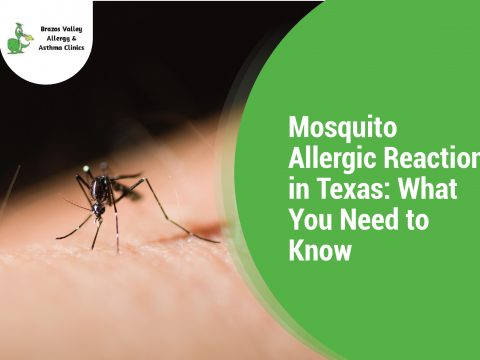- 979-485-9287
- office@bvallergy.com
-
 979-251-7804
979-251-7804
Learn About Food Allergies

Allergic to Pets? Learn About Cat Allergy
February 5, 2019
Bee Sting Allergy
February 19, 2019What is a Food Allergy?
We all love eating. I mean, who doesn’t? However, there are people who have problems eating certain food. Their body has an abnormal response to certain food they eat, which is triggered by their body’s immune system. This is called a food allergy and it is estimated to affect 4% to 6% of children and 4% of adults, according to the data gathered by the Centers for Disease Control and Prevention.
Food allergy symptoms are common in babies and children, but they can appear at any age. Even if you had no problems eating certain foods before, it is still possible to develop an allergy afterward. When you have a food allergy, your immune system overreacts and attacks a particular protein found in that food. The immune system mistakenly treats that protein as a threat, causing an allergic reaction.
Almost any food can cause an allergic reaction, but there is a certain food that is responsible for 90% of all reactions:
- Fish
- Eggs
- Soy
- Peanuts
- Wheat
- Shellfish
- Tree nuts
- Milk
Although any type of food can potentially cause an allergic reaction, certain seeds which include sesame and mustard seeds are common food allergy triggers and considered to be a major allergen.
What are the Symptoms of a Food Allergy?
Symptoms of food allergy can affect the different areas of the body. It can impact the skin, the gastrointestinal tract, the cardiovascular system, and the respiratory tract. When one cannot differentiate and are unaware of the symptoms of a food allergy, it might cause life-threatening situations like having a severe allergic reaction called anaphylaxis. If you have food allergies, make sure that you’re aware of the symptoms.
Some of the symptoms of food allergy include:
- Vomiting
- Wheezing
- Trouble breathing
- Weak pulse
- Itching or swelling of the tongue
- Dizziness
- Constant coughing
- Eczema
- Tightening of the throat
- Diarrhea
- Abdominal cramps
Symptoms of food allergy can occur when coming into contact with just a tiny amount of the food you’re allergic to. Because of this, it is important to be prepared for accidental exposure and make sure to bring medications.
How to Treat a Food Allergy?
The best way to protect yourself against an allergic reaction is to avoid the food you’re allergic to. However, if you come in contact with a food that causes an allergic reaction, you can purchase over-the-counter medication like an antihistamine. It will not treat or cure you but it will help reduce the symptoms. This works if you’re having a minor allergic reaction.
For a severe allergic reaction, you may need an emergency injection of epinephrine or a trip to the emergency room. People who are prone to having severe allergic reactions always carry with them an epinephrine auto-injector, which is a medical device designed to deliver a dose of a particular drug.
To learn more about food allergies and how to effectively treat them, you can visit Dr. Jantzi, a board-certified allergist and immunologist in the Brazos Valley area. He provides the best treatment and cares for patients with allergies, asthma, and immune system illnesses.
REFERENCES:
Mayo Clinic
American College of Allergy, Asthma, and Immunology
National Health Service




